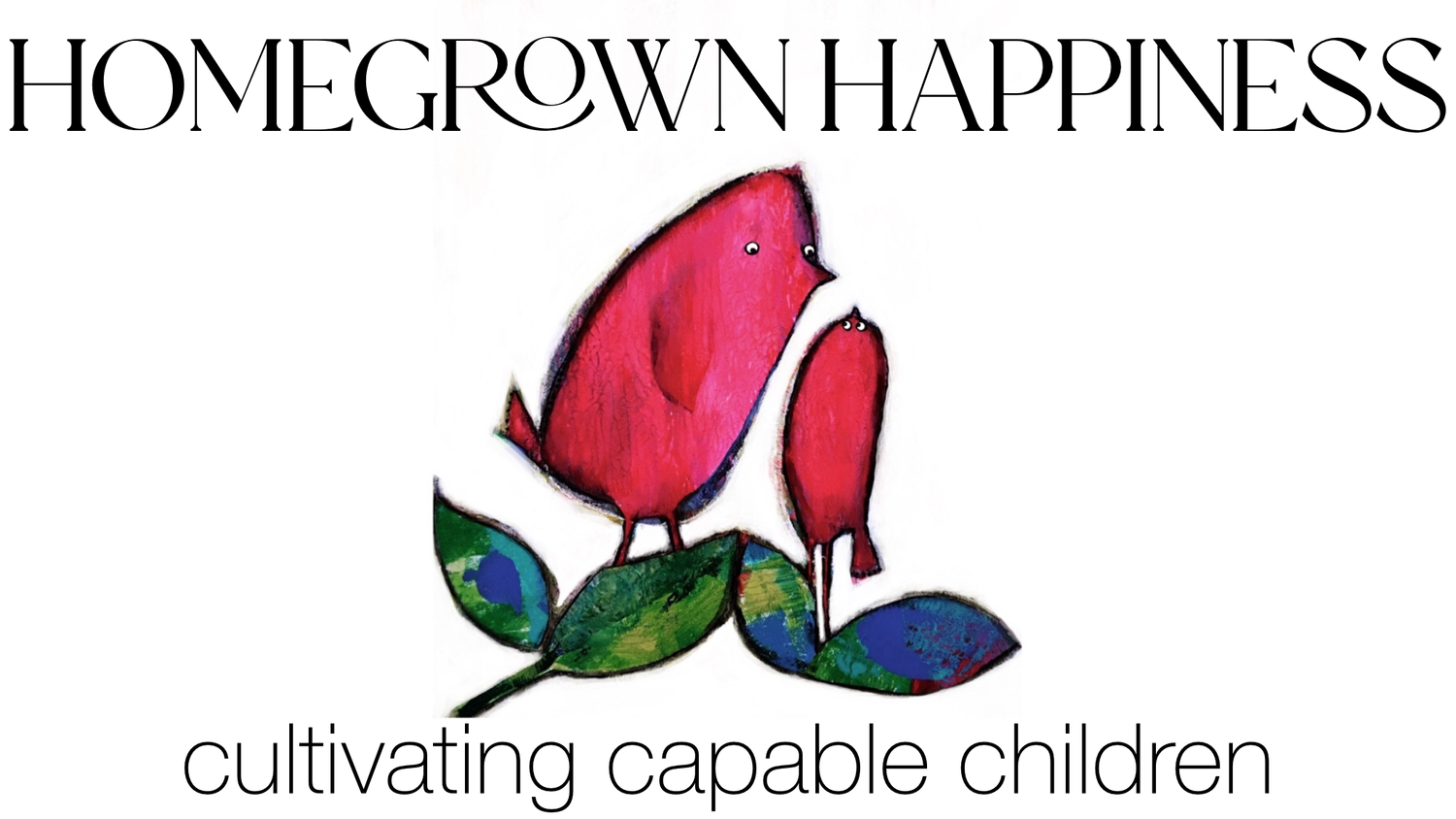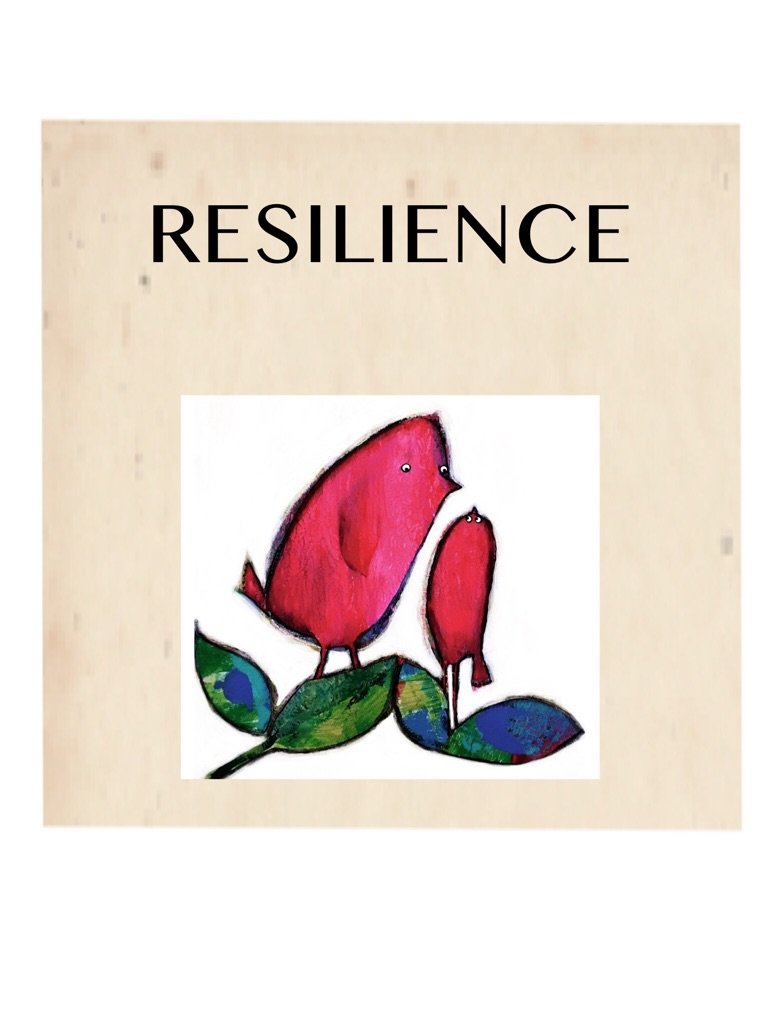It is said that we parent the way we were parented.
We tend to either become our parents or fight hard to not become them. Our unique temperament, life experiences, tolerance levels, and value system all play a part in what kind of parent we become. The fact is so much about parenting requires on-the-job training, and the truth is, we operate on our instincts most of the time.
My hope is that Homegrown Happiness and our 12 healthy mindsets will serve to guide and support the instincts of all parents, because no matter what your style or where you came from, how you think and talk to yourself matters. Your children are watching. Their instincts will be formed by your example.
You have the opportunity RIGHT NOW to help grow healthy, happy human beings...parents of the future.
accepting Self-Worth
~ the ability to sense one's own value or worth as a person
In order to establish and maintain a healthy sense of self, remember your worth comes from the fact that you have value as your own unique self. WHO you are, not WHAT you do, should be most important to you. Your self-talk should reflect that. The key is to place value on your positive, intrinsic qualities, such as being open-hearted, generous, forgiving, curious, etc. If you base your self-worth on how you look, what you achieve, or how you compare to others, you may never feel satisfied. Those external attributes change from day to day. No one is perfect. What matters is that you wake up each day, challenge yourself, and try to be better than you were the day before. You may slip into bad habits and make mistakes. We all do. Just remember to show yourself the same compassion you show others. You deserve it.
Raising children to have positive self-worth begins the day they are born. Every time you respond to their needs, you are showing them that they are important to you. Every time you smile at them, snuggle them, and speak to them, you are also saying, "You matter." Every time you support them as they practice a new skill, especially when they make mistakes, you are reminding them that they are worthy of the chance to learn and grow in their own way. THE WAY YOU SPEAK TO CHILDREN BECOMES THEIR SELF-TALK, so choose your words wisely. They are ALWAYS listening.
feeling confidence
~the ability to believe in one’s self and abilities
Confidence grows from a realistic sense of self. Acknowledging the things you do well and the things you need to practice helps to boost confidence. If you know what you do well, you can make sure to spend time on activities that support your talents, which in turn will boost your confidence. That’s usually fun and pretty easy to achieve. Knowing the ways you are weaker is more difficult, but ultimately, more powerful. Confidence grows every time you act in a way that brings you closer to achieving something important to you. Weaknesses tend to get in the way of achievements. Fear, doubt, and inaction creep in when you think you are not good at something. When you acknowledge your weaknesses, you become empowered and have the choice to get support before you get stuck. The most powerful way to gain confidence is to push yourself past your limits to achieve something that was difficult. Parenting is difficult, but you can do it and do it with confidence!
Raising children who are confident starts the day they are born. Although as newborns, they don’t understand the concept that they are separate little human beings. Every interaction you have with them teaches them about themselves. Remember to always lovingly respond to their needs. Be there to comfort them. Talk to them all day long. Make a point to show support during all of their little achievements as well as big milestones. Keep them on a schedule. Children learn best and feel safer with a routine, so that they know what to expect.
exhibiting self-control
~ the ability to restrain one's emotions and actions
Before we gain self-control, we behave on instinct and emotion. Over time, with proper limit-setting and lots of trial and error, we gain life experiences that teach us how the world works and what is expected. Self-control kicks in when we are able to take what we've learned and use it to regulate our behavior and make reasonable choices. Self-control helps us gain control of our emotions. It is empowering. It shapes our behavior. It guides our achievements. It can be tricky, though. We have to continually practice self-control, because other factors such as lack of sleep or stress can interfere with our ability to stay in charge of ourselves. If you drive a lot, I'm sure you've witnessed some type of road rage on the highway. Those drivers have failed to control their impulses. They are operating only on strong emotions. They have have given up their control. Giving up control, even unintentionally, is scary, and fear is the cause of a lot of negative behavior.
On the other hand, great satisfaction comes from staying in control. It allows us explore a balance between what we want and what we need, which is how we learn what is important to us. We learn that we are a part of something bigger and often find that positive experiences come when we curb our desires for the greater good. Most importantly, we learn that WE ARE OUR CHOICES.
Raising children who exhibit self-control begins at birth. It involves gentle coaching and setting limits from the very beginning. When you soothe crying children and meet their needs, you help to model the ability to calm after upset. When children are infants, it helps to talk to them out loud, describe how they are feeling, and label their emotions. When children are a little older, set limits and explain what is acceptable behavior. Give children choices. Stay in control when children are out of control. Gaining self-control takes lots of practice and having a positive relationship and role model makes all the difference.
Delaying gratification
~ the ability to resist immediate temptation for a later reward
You may have heard of the famous Stanford Marshmallow experiment that was done in the late '60s. It was a study in delayed gratification that followed 4-year-olds over 40 years after the experiment. During the experiment, four-year-olds were put in a chair with one marshmallow on a plate in front of them. They were told they had a choice. They could either eat the marshmallow or wait 15 minutes until the researcher came back. If they hadn't eaten the first marshmallow, the would get a second one.
Most of the children said they would wait, but they really struggled. Many gave in and ate the marshmallow.
The study followed all the children through their lives and found that the children who were able to delay gratification had fewer behavior problems, higher test scores, better coping skills, better focus and attention, were more likely to be trustworthy and dependable, less likely to be obese, and less likely to abuse drugs and alcohol. While the children who couldn't resist temptation were poorer students, more easily frustrated, jealous of others, and were either indecisive or inflexible.
The study revealed that the ability to delay gratification is absolutely critical for a happy, successful life.
developing patience
~ the ability to tolerate frustration, misfortune, or pain without complaint or loss of temper
They say patience is a virtue. It is required for greatness. If that is true, why is it that our modern society places such importance on instant gratification? We get answers to questions immediately with the internet. FaceTime allows us to connect with people instantly. Want to find a book to read? Click! Done. Packages are delivered the same day they are ordered. We no longer have to grocery shop. We place an order and groceries are delivered in an hour or less. Music and movies can be streamed with the touch of a button.
It is not new news that technology has changed our world and it continues to change rapidly. In many ways it is helpful, but with fewer opportunities to practice patience, we have to think about making our own opportunities, so that we can strengthen that emotional muscle. Patience helps us make good decisions. Patience strengthens our ability to empathize and helps us become tolerant of others. Patience helps us reach our goals. Patience makes us happier. The world finds ways to test our patience when we don't expect it. We need to be ready. We need to have lots of practice. We need to purposely put ourselves in situations that require patience, especially if we are fortunate enough to live a life of convenience. Handling frustration and annoyances without complaining is one of the main keys to living a happy, successful life.
building resilience
~ the ability to recover readily from adversity
More and more studies show that being resilient or "having grit" gives us a big advantage when trying lead a happy, successful life. How we adjust our thinking and behavior when things go bad, informs the outcome of each situation. Life is filled setbacks, but it is filled with joy, too. Keeping a healthy perspective is the key. Even when things get tough, it is always possible to find a way to be grateful. Though finding something to be grateful for may be hard at first, with time and practice, it gets easier.
When things don't go our way, blaming others may make us feel better... temporarily... but when we do that, we position ourselves as the victim and we give up our power. Negative emotions and negative thinking can sabotage our recovery. It is imperative that we acknowledge all negative, uncomfortable emotions in order to gain control over them. The bad stuff turns into good stuff when it teaches us to be better, stronger. Every time we brush ourselves off and get back up after a setback, we gain our strength back. We get our life back. We become resilient. Attitude makes all the difference. It's all about learning to trust yourself to adjust yourself.
maintaining relationships
~ the ability to sustain meaningful relationships based on mutual respect and supportiveness
"We human being are social beings. We come into this world as the result of others' actions. We survive here in dependence on others. Whether we like it or not, there is hardly a moment of our lives when we do not benefit from others' activities. For this reason, it is hardly surprising that most of our happiness arises in the context of our relationships with others." ~ Dalai Lama XIV
From birth to death, we need to maintain human connections. Throughout a lifetime, there are times we need to receive support and other times we need to give support. As humans, we connect through touch, communication, understanding, and love. It is how we survive. Our interactions with others and our ability to be interdependent is directly connected to our happiness. We become our best selves through strong, healthy relationships.
In order to develop and maintain healthy relationships, we need to make time for them. Relationships grow through shared experiences. Spending time together creates memories and develops a history. If these memories are positive, not necessarily perfect, the relationship has a better chance of surviving.
We can make positive memories, and in turn, positive relationships by learning to trust others, accepting others' differences, listening to others carefully, communicating with them respectfully, repairing all conflicts, and contributing value by our ideas and actions.
AcknowledgING GRATITUDE
~ the ability to appreciate and feel thankful for what one has
Gratitude is not only linked to happiness, it is also strongly linked to positive mental health. Allowing our minds to acknowledge and sit with an appreciation of all the little favorable things that happen during each and every day creates more joy in our lives, which inspires us to be hopeful and kind. Learning to be grateful is not something that happens easily. It is a mindset that takes practice. When we slow down and recognize little things in our lives that are beautiful or go right, it helps us find beauty in and a connection to the rest of the world. During difficult, stressful times, focusing on these little positive things helps us maintain a perspective that is balanced. It reminds us that things are not all bad all the time. Gratitude propels us forward. Feeling grateful helps us keep stress and depression at bay.
Once we are able to acknowledge gratitude in our own lives, we will be able to convey it to others. Expressing gratitude when someone is kind helps us develop stronger connections. Being grateful is uplifting and attractive. People like to be around others who are appreciative, enthusiastic, and strong. Gratitude improves our social connections, and therefore, improves our happiness.
DISPLAYING COMPASSION
~ the ability to feel deep sympathy and sorrow for another who is stricken by misfortune
COMING SOON!
exhibiting Optimism
~ the ability to look on the more favorable side of events and expect the most positive outcome
COMING SOON!
demonstrating creativity
~ the ability to transcend traditional ideas to create meaningful, new ideas
COMING SOON!
recognizing purpose
~ the ability to reach a desired goal for one's self
COMING SOON!














